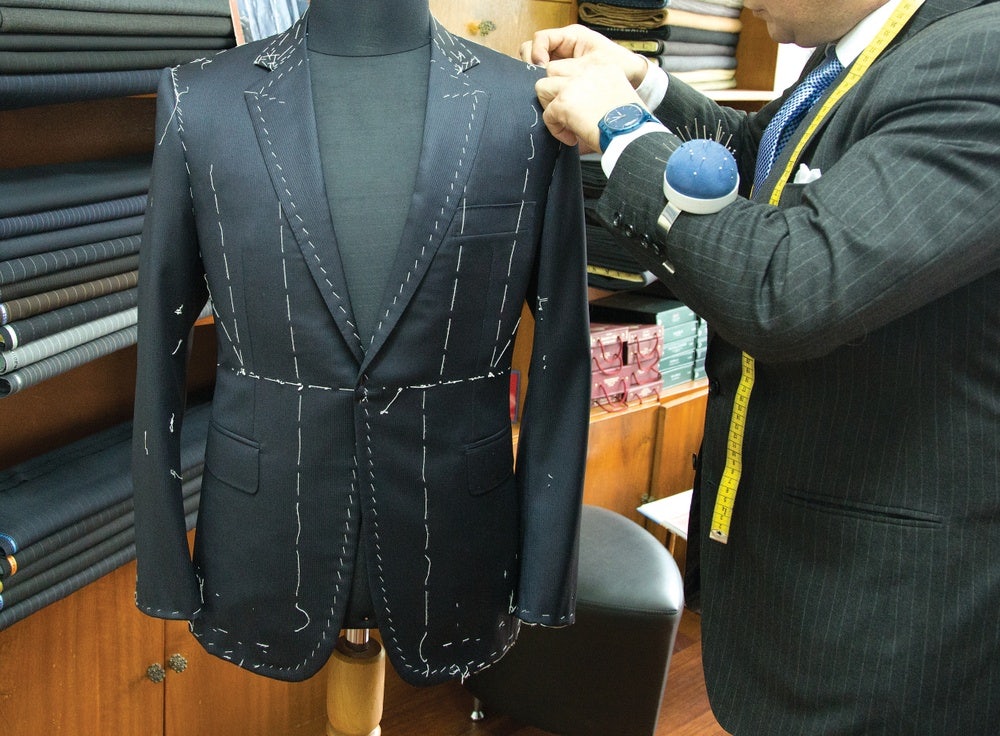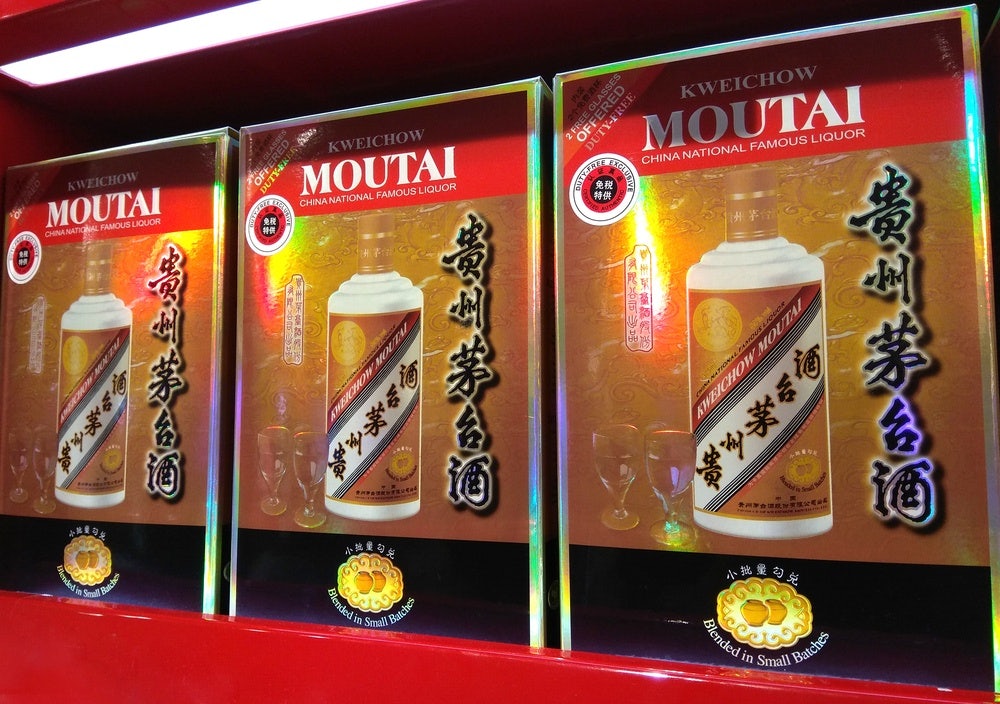In The Review, we round up breaking news discussed in our daily newsletter, The Daily Brief. This week, we discussed:
- An AI-powered app that's taking on luxury suit makers,
- The challenge China's tatt00 ban poses to reaching millennials,
- Luxury liquor makers Kweichow Moutai Co reporting their fastest growth in six years,
- Stella McCartney buying back 50 percent of her brand from luxury giant Kering, and
- the proposal to target strategic technologies in the U.S.-China trade war.
Monday, March 26#

Chinese company YiHu has launched an app that pairs an AI fit with material from the same factories used by Armani, Boss, and Burberry to manufacture custom tailored suits, according to Forbes. With body measurement data gathered over the past 10 years and two photos from the customer, the app can generate a model of their body that's accurate to within 1cm. It's yet another example of how new technologies are disrupting the luxury business.
Click here to read our piece on how Chinese copycats are the new disruptors.
Tuesday, March 27#

Chinese footballers have begun bandaging up their arms to disguise their tattoos. The practice seems to be a response to the state's emphasis on 'moral' behavior, which has also prevented musicians and performers with tattoos from appearing on TV. The practice creates a new obstacle for brands looking to reach Chinese millennials through their favorite KOLs, many of whom have embraced the trend.
Click here to read our piece on the most taboo topics for luxury brands in China.
Wednesday, March 28#

Baijiu makers Kweichow Moutai Co have recorded their greatest increase in profits in the past six years according to Reuters. Already the world’s most valuable liquor maker, the company has made a strong comeback from bans on banqueting and ostentation that hurt sales in recent years.
Thursday, March 29#
Stella McCartney will buy out the 50 percent share of her company owned by luxury giant Kering, Reuters reports. The move brings their 17-year partnership to an end, but hardly suggests diminished aspirations for the brand, including its ambitions in China. Stella McCartney signed up to Alibaba’s Luxury Pavilion late last year, becoming the first Kering brand to do so.
Click here to read our story about Stella McCartney’s e-commerce strategy in China.
Friday, March 30#

As the United States-China trade war continues to take shape, the U.S. is considering using a law usually reserved for national emergencies to limit Chinese investment in ccutting-edgetechnologies. According to The New York Times, The 1977 International Economic Powers Act has previously been used to place sanctions on nations such as Sudan and Iran. With respect to China, it would be used instead to prevent the United States being overtaken in strategic technologies such as microchips and the 5G wireless protocol.
What does this have to do with luxury brands? Which nation leads the way in computing and communications technology could have huge ramifications in terms of business and consumer data security, the censorship of brand communications, and beyond.
Click here to read our story on the Chinese smartphone alliance taking on WeChat, or here to read about the anti-competitive practices of Chinese social media sites.
